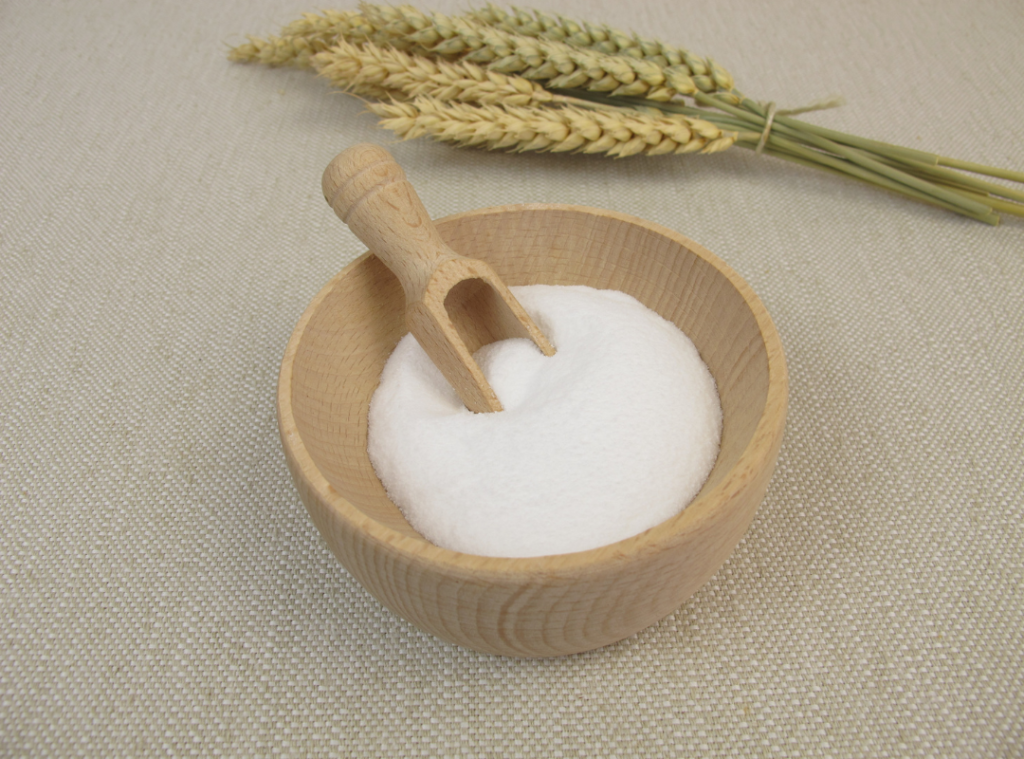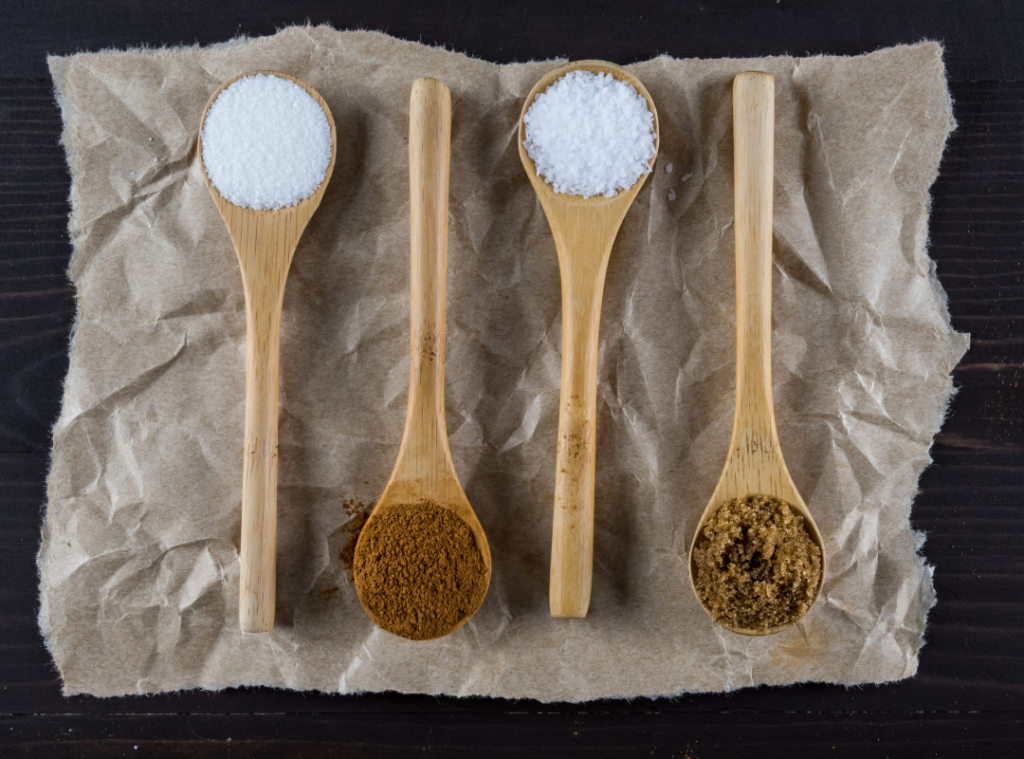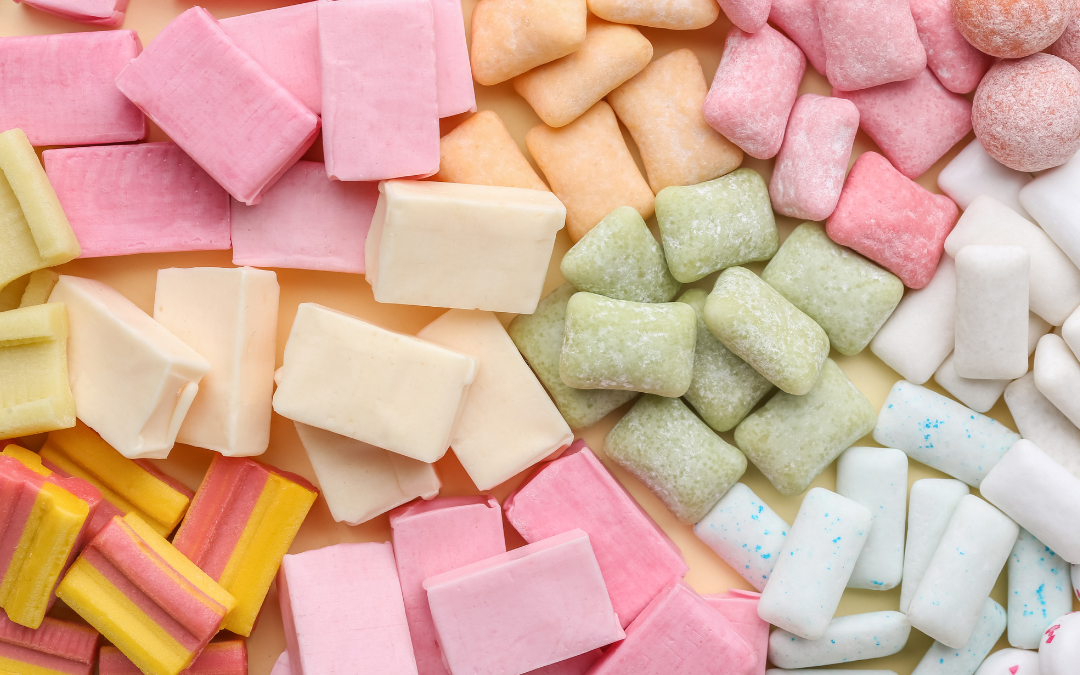What is Dextrose?
Dextrose is a type of simple sugar derived from corn, found in honey, bread, and sugar. It appears as white, odorless, crystalline granules with a sweet taste. Dextrose is a food additive that is similar to fructose and is chemically identical to glucose, being approximately 20% sweeter than cane sugar.
The sweetness level of dextrose is influenced by various factors such as temperature, acidity, the presence of salts, flavoring agents, and the concentration and type of other sweeteners in the food product. Unlike sucrose, dextrose is not affected by the process of inversion (which alters its qualitative and physical nature), and its sweetness remains unchanged.
Types of Dextrose:
- Dextrose Monohydrate
- Dextrose Anhydrous
Packaging: 25 kg bag
CAS NO (Dextrose Monohydrate): 1-10-5996
CAS NO (Dextrose Anhydrous): 50-99-7
Formula (Dextrose Monohydrate): C6H14O7
Formula (Dextrose Anhydrous): C6H12O6

Uses of Dextrose:
Difference Between Dry and Hydrated Dextrose:
The difference between dry and hydrated dextrose lies in their molecular structure, with the dry form being devoid of water. This characteristic means that the dry form has less tendency to interact with other ingredients compared to sugar or hydrated dextrose. One gram of hydrated dextrose contains 9% water in the form of crystals. Hydrated dextrose is commonly purchased for products requiring a water-soluble sweetener.
Dextrose anhydrous is another type of food industry ingredient primarily used as a preservative and to extend the shelf life of sweet products.
Applications of Hydrated Dextrose:
Confectionery: Used in candies, chocolates, cakes, cookies, bread, biscuits, jams, jellies, and honey products.
Baking Industry: Dextrose monohydrate, with its sweet flavor, is utilized as a sweetener, texturizing agent, or fermentation substrate in baking.
Beverage Industry: Dextrose monohydrate serves as a nutritional supplement and low-calorie sweetener in beverages like fruit juices, energy drinks, and soft/alcoholic drinks.
Pharmaceuticals: It can be used as a nutritional supplement in drug formulations.
Animal Feed: Hydrated dextrose can be included in animal and poultry feeds, including pet food.
Bakery and Desserts: Hydrated dextrose acts as a low-calorie sugar alternative in confectionery and ice cream production.
Gum and Candy Coating: In gum and candy dragees, dextrose enhances the stability of the food color, contributing to the extended shelf life of the produced product.
Frozen Desserts: Hydrated dextrose is utilized in frozen desserts, dairy desserts, fermented desserts, milk-based beverages, creams, and fillers.

Uses of Dry Dextrose:
Dry dextrose is one of the primary ingredients in industrial and fancy breads, used to ensure the preservation of texture and the pleasant quality of the product.
Warm drink powders, especially those with a sweet flavor base and low calories or beneficial calories, use this substance in their ingredients. In fact, this substance acts as a sweetener in most products that are purchased in powder form and transformed into a sweet food at home by adding water and heat.
In the pharmaceutical industry, this substance is primarily processed in sweet-tasting products instead of sugar with dry dextrose.
Additionally, it is a common sweetener in bodybuilding and vitamin supplements. The popularity of this simple sugar among athletes and bodybuilders is due to its ability to release energy quickly and help repair damaged cells, particularly after exercise.


